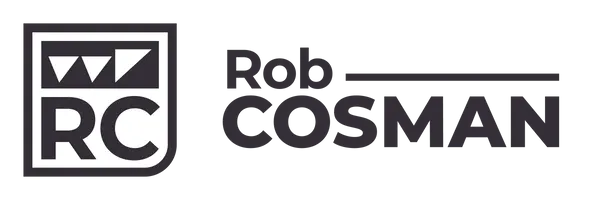Quality Tools. To learn and keep up with the instructions at the Training the Hand Workshop you need quality tools. We prefer you do not to bring sub-par tools (tools needing repair, rust removal, etc.) to the class, as you will spend more time tweaking and trying to tune the tools rather than learning woodworking skills. If you are unsure about your tools just email us at robswemaster@robcosman.com and we can advise you.
Purchasing Tools for Delivery at the Workshop. If you would like to purchase tools prior to the workshop and have them waiting for you when you arrive, then please call our customer support at (888) 920-1442 and order them over the phone. If you order directly from our website there is no option to pick-up tools at the workshop, this is why you must phone in your order.
Rental Tool Kits. We maintain several tools kits that students can rent during their workshop. Our rental tool kit equals the required tool list below. If renting a tool kit, please bring two dull or unprepared chisels (1/4 inch and ½ inch recommended) for sharpening instruction.
Student Tool Discount During the Workshop. Students enjoy a 15% discount on all items purchased during the workshop. You can try out and purchase any tools we sell during the workshop.
Sharpening Gear. Sharpening is the most important woodworking skill for a hand tool woodworker. There are numerous sharpening systems on the market today, but we teach and will be using the Rob Cosman freehand sharpening system. If bringing your own tools, we ask that you bring sharpening gear approximately equal to our Apprentice Sharpening Kit (meaning stones in grits of 1000, 6000, 16,000).
Shipping Tools to Canada. DO NOT ship your tools across the US / Canadian border using a delivery service (e.g. UPS or FEDEX). Tools shipped in this way typically get held at the border and are charged a significant brokerage fee.
Required Tools List:
Sharpening Gear:
- 1000 grit diamond or water stone (Rob Cosman's premium 300/1000 grit diamond stone recommended)
- 6000 grit water stone or a 4000/8000 combo grit water stone (Shapton or Norton recommended)
- 16,000 grit water stone (Shapton ceramic water stone recommended)
- Water stone holder (Shapton heavy stone holder recommended)
- Stone to flatten the water stones (Rob Cosman's premium 300/1000 grit diamond stone recommended)
- Thin ruler (Rob Cosman's sharpening ruler recommended)
Required Tools
- Dovetail (rip) saw (Rob Cosman's Dovetail Saw recommended)
- Crosscut saw (Rob Cosman's Joinery Crosscut Saw recommended)
- Fret saw and spare blades, sized to fit into your dovetail saw kerf (Cosmanized Fret saw recommended)
- Dovetail Marker (Rob Cosman's Dovetail Marker recommended)
- 2 x wheel style marking gauges (Rob Cosman's or Cosmanized marking gauges recommended)
- Mortise marking gauge (Rob Cosman's mortise gauge recommended)
- 2 x dividers (4 - 6 inch dividers recommended)
- Dovetail Marking Knife. (Rob Cosman's marking knife with saw tooth blade recommended)
- Dovetail Offset Tool (Rob Cosman's Shawn Shim recommended).
- Rob Cosman's Kerf X-10.
- Bench Chisels: 1/4 inch and 1/2 inch (IBC or Lie Nielsen chisels recommended). Note: If you rent a tool kit bring two dull or unprepared chisels for sharpening practice.
- Half blind or skew chisels (Rob Cosman's 5/8-inch half-blind chisel recommended)
- Mortise Chisel: 1/4-inch or 3/8-inch (IBC or Lie Nielsen recommended).
- Mallet (Rob Cosman's Mallet recommended).
- Low angle block plane (WoodRiver or Lie Nielsen recommended)
- #5, #5-1/2 or #6 bench plane (WoodRiver or Lie Nielsen planes recommended).
- Appropriate screwdrivers to adjust your plane.
- 6-inch solid or combination square.
- 2-inch solid square.
- 6-inch or 8-inch mill bastard, flat, rectangular, metal file (for preparing your plane).
- 3/4-inch automotive refinishing tape or painters’ tape (3M Automotive masking tape recommended).
- Tape measure (12-foot, imperial scale, recommended)
- Wax. A small piece of paraffin wax to wax your plane (a tea candle or Rob Cosman's Plane Magic wax is recommended).
- Marking knife or utility knife for striking knife lines.
Optional Tools & Items
- Tenon Saw (Rob Cosman's Medium Tenon Saw recommended)
- Small router plane (Lie Nielsen recommended).
- Additional Bench Chisel sizes: 1/8 inch, 3/8 inch, 5/8 inch, and 3/4 inch (IBC or WoodRiver).
- Rob Cosman's 17-degree chisel (1/4 or 1/2 inch).
- Medium Shoulder Plane (WoodRiver or Lie Nielsen recommended)
- Panel Gauge (Rob Cosman Panel Gauge recommended)
- Winding Sticks (Rob Cosman Recommended)
- Jewelers 10X or 20X magnifying loop (to examine your blade's cutting edge).
- 12-inch square.
Non-Tool Items to Bring
- Pencils. A couple of #2 pencils and one of those small handheld manual pencil sharpeners or .07mm mechanical pencils (.05mm is too thin).
- Red Ink Pen. One or two red ball point pen (not felt tip). A red pen is needed to mark on walnut. Red ink shows up on dark walnut.
- Black Sharpie pen
- Rags. Bring an old T-shirt you can cut up and use for rags.
- Pliers (To adjust your fret saw blade)



